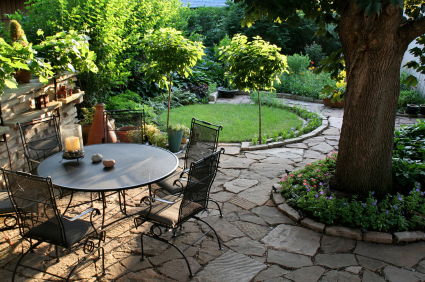How to avoid Gardening Injuries
Why do garden accidents happen?
- People take shortcuts
- Lack of skill or training to ensure that the job is done safely
- Ignorance of potential risks
- Lack of planning and preparation
- Bad luck; being in the wrong place at the wrong time
Making your garden safer
- Design a garden so that it reduces the need for high maintenance and lifting.
- Avoid trip hazards such as loose paving slabs, hosepipes left unravelled or uneven surfaces.
- Use surfaces that provide a good grip underfoot.
- Avoid the garden if possible when conditions are icy and slippery.
- Do not leave sharp tools lying around. Lock them away from children.
- Empty paddling pools after children have finished playing in them.
- Learn which plants are poisonous and ensure children and pets stay away from them.
- Electrical equipment should never be used in wet weather.
- Use an RCD (residual current device) to prevent electric shocks.It cuts out the flow of electricity when a cable or flex is cut through.
- Lock away chemicals such as weedkillers and insecticides. Just because they have the words 'organic' or 'bio' on them, does not make them safe for children to touch.
- Wear safety equipment - such as goggles, hard hats, gloves and steel toecapped boots - when using machinery.Tuck in loose items of clothing.
- Never leave a barbecue unattended and make sure the flames are extinguished before going to bed.
- If you are in the least bit unsure about the safety of tackling a job, call in professionals.

Pond safety
- Position the pond where it can be seen from the house.
- Design the pond with gently sloping edges - this is safer than a sudden drop into deep water.
- Cover small ponds with a combination of heavy-duty wooden trellis and wire mesh.
- Safety grids that sit just below the surface of the water are also available from a number of retailers.
- Put a fence around large ponds to ensure children cannot access them.
- Grow plants around the deeper side of a pond to stop children getting near the edge.
Using a step ladder
- Never work sideways. Directly face your work.
- Don't overstretch yourself.
- Ensure the ladder gives you enough height for the job.
- Never leave tools on the platform at the top of the ladder.
- Ensure the ladder's rungs are structurally sound and not damaged, rusty or dented.
- Check the ladder has rubber feet to prevent it slipping.
- Make sure the ladder's feet are on solid, even ground.Keep the steps clean and dry.
- Keep one hand firmly on the ladder when working.
- Do not leave prunings on the rungs of the ladder. They could become slippery and create a trip hazard.
Personal safety equipment
Around 300,000 individuals in the UK attended Accident and Emergency departments after having an accident in the garden in 2004. Some 87,000 people were actually injured while gardening.
The lawnmower tops the list of the most dangerous pieces of equipment, with 6,500 lawnmower related accidents reported each year. Suprisingly the innocuous flowerpot is the second most dangerous tool, causing 5,300 accidents, with falls, cuts and lifting injuries some of the most common types of accident recorded.
Many of the following points might sound like common sense, but it's incredible how many people end up in hospital because they haven't taken basic safety precautions in the garden.
You can help to avoid accidents by following some simple guidelines:
The main risk with ponds is that children will fall in and drown. It is best to avoid building a pond until a child is at least five years old. If you do have a pond, then fill it in. If you must have a pond in the garden, follow these tips to minimise the risks:
Always make sure that you are wearing the correct Personal Protective Equipment (PPE) to avoid a serious injury when working in the garden. This is particularly important when operating machinery such as mowers, strimmers, chainsaws and hedge-trimmers. PPE can include steel-toe caped boots, goggles, ear-defenders, gloves etc. Always consult an expert if you are unsure what you should be wearing for a job.












